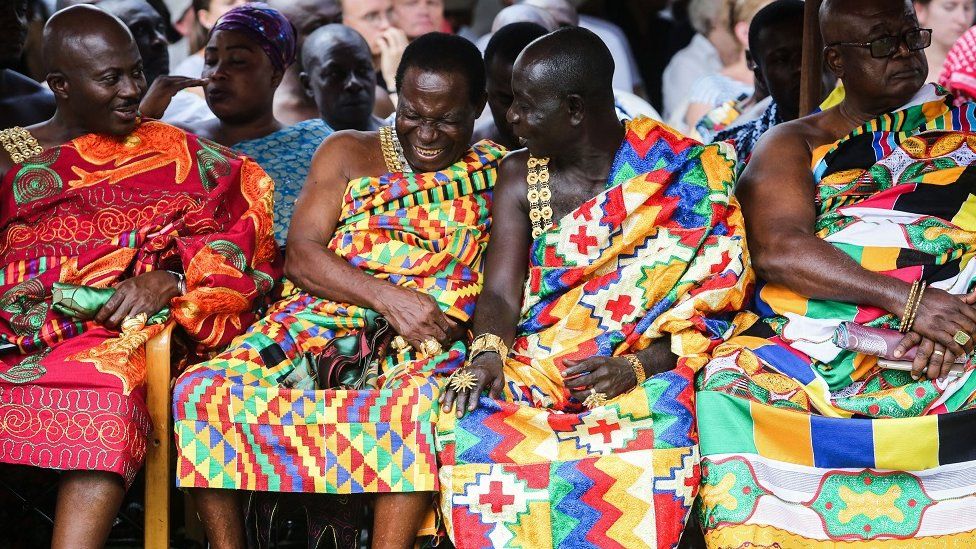Northern Ghana stands as a treasure trove of cultural richness, boasting an intricate tapestry woven from the traditions, beliefs, and customs of various ethnic groups. Encompassing regions such as Upper East, Upper West, and Northern Region, this area teems with vibrant cultures that captivate the imagination and offer an immersive experience into Ghana’s diverse heritage.
Ethnic Diversity:
Northern Ghana is home to several distinct ethnic groups, each with its unique traditions and practices. The Mole-Dagbon people, predominantly inhabiting the Northern Region, include the Dagombas, Mamprusis, and Gonjas. In the Upper East Region, tribes like the Frafra, Kusasi, and Builsa contribute to the cultural mosaic, while the Sissalas, Dagaabas, and Waalas are prominent in the Upper West Region. Each group contributes its customs, languages, and cultural celebrations, enriching the region’s diversity.
Traditional Festivals and Ceremonies:
The cultural calendar in Northern Ghana is adorned with vibrant festivals that celebrate various aspects of life, history, and spirituality. Festivals like the Damba Festival of the Dagombas and the Bugum Chugu of the Frafra people are significant cultural events marked by traditional dances, drumming, colorful attire, and rituals that reflect the cultural heritage and history of these communities. These celebrations often draw locals and visitors alike, fostering community spirit and unity.
Traditional Music, Dance, and Arts:
Music and dance are integral parts of daily life in Northern Ghana. The mesmerizing rhythms of traditional drums, xylophones, and other indigenous instruments accompany ceremonial events and social gatherings, creating an atmosphere pulsating with cultural vibrancy. The iconic xylophone music of the Lobi and Dagara people, coupled with the energetic dance performances, narrate tales of history, identity, and communal values.
Artisans in Northern Ghana exhibit exceptional craftsmanship, creating beautiful handicrafts such as woven baskets, smocks, leatherwork, and pottery. The intricate designs and patterns embedded in these crafts carry significant cultural meanings, often reflecting societal values or historical narratives.
Cultural Beliefs and Spiritual Practices:
The cultural fabric of Northern Ghana is interwoven with spiritual beliefs and traditional practices. Indigenous religions coexist with Islam and Christianity, representing a blend of faiths and belief systems. Traditional shrines and sacred spaces serve as focal points for rituals, prayers, and offerings, maintaining a connection between communities and their ancestral spirits.
Culinary Delights and Traditional Cuisine:
Northern Ghanaian cuisine reflects the region’s diverse agricultural practices and culinary traditions. Staples like millet, sorghum, yams, and maize form the base of many dishes. Delicacies such as “Tuo Zaafi” (TZ), a popular dish made from maize or millet flour served with soup, and “Waakye,” a rice and beans dish, are local favorites. The flavorsome spices and unique cooking techniques showcase the region’s culinary diversity.
Challenges and Preservation Efforts:
While Northern Ghana’s cultural diversity is rich and vibrant, it faces challenges in preserving some traditions due to modernization, urbanization, and changing lifestyles. Efforts by local communities, cultural organizations, and government initiatives aim to safeguard and promote these rich cultural heritages through cultural festivals, educational programs, and initiatives supporting traditional artisans and craftsmen.
Conclusion:
The cultural diversity of Northern Ghana is a testament to the region’s richness and historical significance. Embracing a multitude of traditions, languages, rituals, and art forms, this area offers a profound insight into Ghana’s cultural tapestry. As efforts continue to preserve and celebrate these diverse cultures, Northern Ghana remains a captivating destination for those seeking to explore and appreciate the enchanting diversity of this region.
